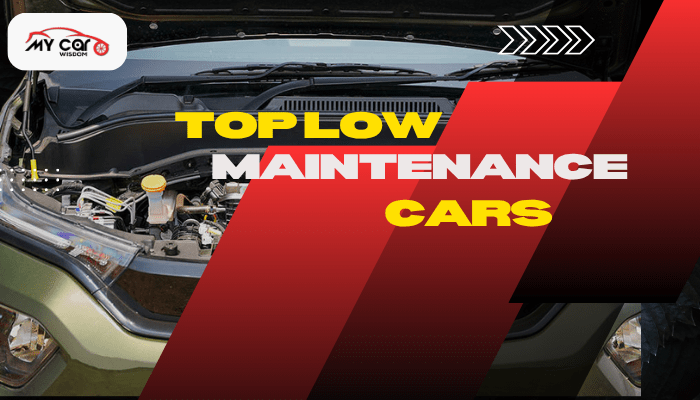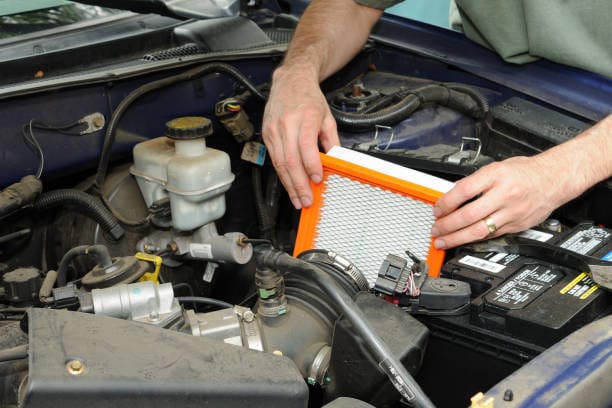When you pull into a petrol station, you’re often presented with a choice: regular or premium fuel. As a result, numerous drivers have thought that extended warranties are provided due to premium fuel and think that premium fuel generally provides enhanced performance, enhanced protection to the engine, and even better mileage.
But is this always true? Is it really smarter to overpay for premium gasoline, or are there more myths than facts about this additive? So in this article you will find out about premium fuels and some myths, as well as whether they are worth using in your car or not.
Understanding the Basics: What Is Premium Fuel?
High-octane fuel or premium fuel has a higher octane number as compared to the normal fuel or regular fuel. Octane is an indicator of how much the fuel will resist knocking or pinging during combustion in an engine. Knocking is a process whereby the mixture of fuel and air in the cylinders of the engine detonates instead of burning at the right time in the process in the cylinder head, which results in inefficient burning of fuel, and this may lead to a lot of damage in the engine of the car.
In most countries around the globe, premium fuel is usually defined to have an octane rating of 91 and above, while regular fuel has an octane rating around of 87. The higher the octane rating, the less likely the fuel is to ignite too early, which helps prevent engine knocking. While this might sound like a good thing, not all cars need premium fuel. If your car is designed for regular fuel, using premium won’t make it run better or give you more power.
Many people still have misconceptions with regards to premium fuel, and these myths might make them think that everything at the pump becomes worth it when it comes to the premium type. Let’s break down some of the most common myths:
Myth 1: Premium fuel is cleaner.
The popularity of using premium fuel has been aided by one of the biggest myths, that it is much cleaner than regular fuel. The preparation of this fuel requires the use of more detergents, or that it burns cleaner than the normal fuel. Although this might not be completely true. For example, most of the fuels, such as standard and premium, that are available on the market contain adequate levels of detergents that are recommended by the regulatory laws to maintain the cleanliness of the engines.

Fact: The fact is, the premium fuel does not contain substances that would make it sufficiently cleaner than the regular fuel. Those originally used in the United States have to contain low emissions of sulfur, and the fuel has to clean the engine. When using premium fuel, this will not make the engine perform to be clean or have less emissions than using regular fuel.
Myth 2: Premium Fuel Improves Fuel Economy
Some drivers feel that the car’s fuel efficiency will be improved if the premium fuel is used, meaning that more distance can be covered with the same quantity of petrol in the tank. Yet this is not correct, especially as far as most vehicles are concerned. Although premium fuel may give slightly better mileage in modern cars, there is very little need to use it unless your car’s owner’s manual recommends it.

Fact: Most often, using premium fuel is not more economical as it is not more efficient. However, if your car does not require the use of the premium fuel, one can refill it with the normal fuel with a similar effect but at a lower price.
Myth 3: Premium Fuel Boosts Engine Performance
Another untruth that many people have is that purchasing premium fuel is beneficial for giving your car a performance kick-start. This stems from the belief that because of the higher octane rating of premium fuel, the fuel can be burned with better effectiveness and with more power produced. While this may be true for certain high-performance engines, the average car engine is not designed to benefit from premium fuel.

Fact: Super fuel will only enhance performance in cars that are designed to travel with it. That is why if the instruction manual of your car does not advise the use of premium fuel, do not expect any difference in the performance.
Myth 4: Using Regular Fuel in a Premium-Fuel Vehicle Will Damage the Engine
There are those who fear that by putting normal gasoline instead of the right one of premium gasoline in a tank of their car, they will damage their engines a lot. It is, however, important to understand that engines that have been designed to be compatible with high-performance fuel will not perform as they should when they are given normal fuel; however, modern cars are fitted with technology that enables timing to be adapted and prevents any harm from occurring.

Fact: Using regular fuel once in a while when you forgot to fill up with premium fuel will not hurt your engine in the long run, but to start, it is preferred to use the recommended fuel for your car. However, using lower-octane fuel in a car that requires high-octane causes a decrease in overall performance over time.
When Premium Fuel Might Be Necessary
After going through these misconceptions, maybe it is time to look at real scenarios where one may use premium gasoline. Some vehicles are tuned to utilize fuel that contains a relatively high octane rating. Now, if your car’s manufacturer recommends so, there’s always a reason for it—and this is true with premium fuel.
1. High-Performance and Luxury Cars
A multitude of extraordinary and luxurious vehicles are driven by truly powerful engines that are fed high octane fuel, this is indeed, the basis of their astonishing driving and performance. Their engines have higher compression ratios which, in turn, allows them to attain more energy from the fuel during combustion. Using low-octane fuel in sports vehicles can have negative side effects, such as knocking, both lower performance, and fuel efficiency.
Urgent role of high-grade fuel consumption in sports cars or supra-cars with turbocharging and/ or supercharging engines cannot be overemphasized due to the necessity to the sensitive powertrain to resist possible damage and finally get high performance. In this circumstance, the extra money that you possibly think should be paid at the gas station may be warranted in this case to protect your car’s performance and life expectancy.
2. Turbocharged and Supercharged Engines
An increasing number of vehicles nowadays are fitted with turbocharged or supercharged engines therefore they need to use premium gas. These engines supercharge the compressed air inside the combustion chamber, as a result, the machine can produce surplus energy. But it comes with the drawback that the cylinder is prone to knock so high-octane gasoline that does not ignite too early is needed.
3. Direct Injection Engines
Direct-injection engines, which directly deliver fuel to the combustion chamber at high pressure, are being favored by some modern vehicles. This type of engine can benefit from the use of premium fuel because it is more resistant to pre-ignition and knocking due to the octane rating.
If your vehicle is equipped with a direct-injection engine, review the owner’s handbook to find out if the manufacturer recommends the use of premium fuel. A particular guidebook may not specify the use of premium fuel for every model of direct-injection engine but some manufacturers require it to ensure the highest level of vehicle performance and fuel efficiency.
When Premium Fuel Is Unnecessary
Most drivers do not need premium fuel. Unless your car’s maker specifically says that you should use premium fuel, you do not need to worry about putting in regular gasoline as it will not affect your engine nor will your car’s performance and fuel economy decrease.
1. Standard Commuter Cars
The majority of cars on the road today, especially those designed for commuting and daily driving, do not require premium fuel. These vehicles are built with engines that run efficiently on regular fuel. Even if premium fuel is listed as “recommended” rather than “required” in the owner’s manual, most drivers will not notice a difference in performance by using regular fuel.
2. Older Cars
Some people believe that older cars benefit from premium fuel due to wear and tear on the engine. While it’s true that older engines may have accumulated carbon deposits, using premium fuel will not reverse or mitigate these effects. Regular maintenance and cleaning are far more effective at maintaining the health of an aging engine.
Conclusion
In other words, improving fuel quality does not justify paying more, especially for the ordinary driver. If your car is of a model that can use regular fuel, you will realize little or no difference from using the premium fuel type. Such beliefs regarding the use of premium fuel include enhancing cleaner burning, better fuel economy and the performance of the car engine, when in fact, do very well only in exotic or sports cars and luxury vehicles.
The bottom line is that as a driver you should stick to the recommendations by your vehicle manufacturer. For better engine health and performance, use your car if it needs premium fuel. However, where it is recommended or required the regular fuel is appropriate in an attempt to save cash while not compromising power.
So next time you decide to refuel your car you don’t have to go through a list of rumors and consider them to be truths that have to be paid for.
At My Car Wisdom, we help you make informed decisions when it comes to choosing the best car for your needs. Whether you’re a first-time buyer or a car enthusiast, our expert reviews, tips, and comparisons will guide you every step of the way. Start your journey towards smarter car ownership today.
Raja Yadav, the content writer at My Car Wisdom, brings a unique voice and style to our blog. With a knack for storytelling and a keen eye for detail, Raja ensures that every piece of content is informative, engaging, and easy to understand. His focus is on delivering high-quality articles that cater to both novice car owners and seasoned automotive enthusiasts.




